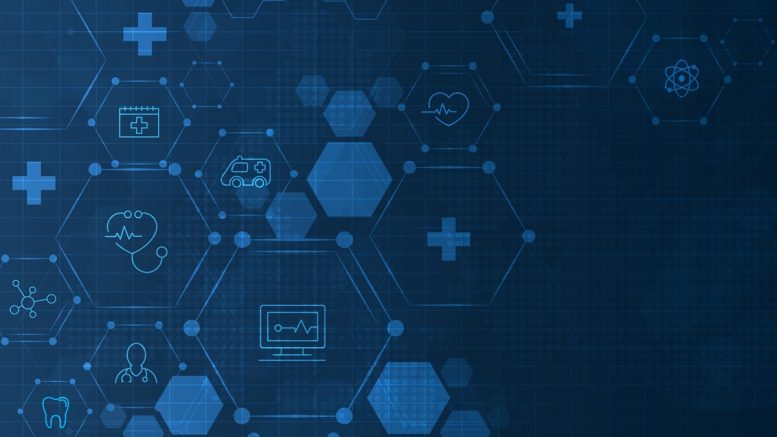Medical Science Liaisons (MSL) play a pivotal role in bridging the gap between pharmaceutical companies and the medical community and are vital to the success of a company. Beyond ensuring that products are utilized effectively and serving as a scientific expert for the medical community, the primary role of MSLs involves establishing and maintaining peer-to-peer relationships with Key Opinion Leaders (KOLs) and other clinicians.1
In today’s dynamic healthcare landscape, where scientific information evolves rapidly and access to medical experts is crucial, the need for highly trained MSLs is paramount. Yet, while the vast majority of MSLs want training, only two-thirds report that these opportunities are available to them, and almost 40% state that they lack time for professional upskilling.2
Current Pain Points in MSL Training
In addition to a lack of time, MSL training is plagued by a range of issues, including geographical barriers for global companies, which can make it challenging to deliver consistent training if opting for in-person delivery. Traditional in-person training also comes with substantial cost barriers and logistical hurdles, as well as the risk of information overload if delivered as multi-hour or multi-day live events. In turn, this can reduce MSL engagement and negatively impact knowledge retention.
Further, with rapidly evolving scientific information, data, and guidelines, there is a clear need for continuous learning and knowledge reinforcement. However, considering how busy MSLs are with other priorities, this can be challenging if opting for a traditional approach to training.
Finally, accurately measuring and demonstrating the effectiveness of training in terms of its impact on MSL performance and knowledge retention can prove a challenge.
Training Needs for MSLs in Today’s Evolving Landscape
For training to be effective, the Medical Affairs Professional Society (MAPS) identified that it needs to be:3
- Practical and able to be used immediately.
- Technology-based, flexible, and available whenever, wherever the trainee wants to access it.
- Available in multiple formats.
- Consumable as individual, low-commitment offerings but placed within a larger framework.
- Collaborative and engaging, with learning enhanced by mentoring, gamification, accountability partnering, collaborative case study reviews, and more.
- Relevant and streamlined to reduce the cognitive load and improve the learning experience.
With these points in mind, the importance of leveraging digital tools and cutting-edge technologies becomes evident.
Digital Tools for MSL Training
Luckily, there is no shortage of digital tools available for MSL training. Some important examples include:
- Asynchronous e-Learning Platforms
These ‘over-time, anytime’ platforms offer versatile learning opportunities for MSLs: from hosting on-demand videos, podcasts, and written materials to interactive infographics and posters, digital journal clubs, quizzes, online case studies, and more. Adding a well-maintained resource center to serve as a knowledge repository/central information hub further helps ensure consistent and accurate information dissemination.
- Mobile Learning and Microlearning
Mobile apps and micro modules—short, focused learning modules—are ideal for providing on-the-go knowledge reinforcement and just-in-time learning. Having this option available alongside other, more comprehensive tools enhances accessibility and convenience for busy MSLs.
- Virtual Reality (VR), Augmented Reality (AR), and Holovision Technology
VR, AR, and Holovision technology represent novel tools that can be used to create a variety of immersive training experiences, both for MSL- and external healthcare provider (HCP) education. Examples include simulation of patient or HCP interactions, including objection-handling, as well as disease state, mechanism, and clinical data visualizations. These technologies are also ideal for case-based learning.
- Artificial Intelligence (AI)-powered Tools
AI-powered learning paths can be used to tailor education to individual needs and preferences. For example, AI chatbots can provide instant answers to MSL queries, and AI avatars can be used to enhance case-based learning. While still in its infancy, there are vast opportunities for AI-based MSL training.
Benefits of Digital MSL Training
Leveraging digital technologies for MSL training comes with numerous benefits, including:
- Increased Accessibility and Flexibility
Digital platforms eliminate geographical barriers, allowing MSLs to access the same high-quality training irrespective of location or time zone. This ensures consistency in knowledge and skills across global teams. The asynchronous nature of virtual training technologies means that MSLs can access training materials at their convenience, without the need to travel to a central location for training. This flexibility is crucial for MSLs—who often spend substantial time out in the field—to fit learning into their busy schedules.
- Enhanced Engagement and Knowledge Retention
Interactive training modules that incorporate simulations, quizzes, and gamified learning experiences are known to increase engagement and improve knowledge retention compared to passive learning formats. The digital learning format also allows for the incorporation of videos, animations, and interactive visuals, which further enhances the learning experience and caters to different learning styles. In addition, by leveraging novel tools such as VR, AR, and holovision technology, MSLs can practice real-world scenarios, such as objection handling or presentations at medical conferences, in a safe and controlled environment, leading to enhanced learner confidence.
- Improved Training Effectiveness and Performance
Digital platforms can track MSL progress over time and identify areas where they need additional support much easier than what can be done with traditional learning approaches, allowing for more personalized learning and continuous support. Likewise, data analytics can be used to assess the overall effectiveness of the training, enabling easy identification of potential areas for improvement.
- Up-to-date, Consistent Information
Digital platforms and centralized knowledge hubs allow for the rapid dissemination of new scientific information, clinical trial data, and treatment guidelines, ensuring that MSLs are always up-to-date with the latest developments. The use of digital tools also ensures that all MSLs in a company receive the same consistent messaging, regardless of their location.
- Enhanced Collaboration and Communication
Through the use of online forums and discussion boards, MSLs can seamlessly share best practices, ask questions, and collaborate with colleagues on their own schedules. Virtual meetings and webinars can be added as needed to enhance knowledge-sharing and collaboration further.
- Reduced Training Costs
Lastly, digital training largely eliminates the need for physical training materials, travel, accommodation, and venue rentals, thereby significantly reducing training costs. Digital platforms can easily be scaled to accommodate large MSL teams, making them a cost-effective solution for global pharmaceutical companies.
Implementation Considerations
Before implementing a new digital training course, life science companies should first evaluate and select the appropriate digital training platform and technology based on their specific needs. Depending on the technology chosen, there may be a need to proactively promote user adoption and address potential resistance to digital training. After its launch, it will be key to conduct ongoing evaluations of the program and technology to optimize the training. Companies may also want to consider working with a single, one-stop provider for all training needs—technological, strategic, and content—to further streamline the process.
By Natalie Yeadon, President & CEO Impetus
References
- https://themsls.org/what-is-an-msl/
- https://www.onemsl.com/wp-content/uploads/2022/05/One-MSL-Global-Survey-2022-Findings-Report-MSLs.pdf
- https://medicalaffairs.org/training-medical-science-liaisons-msl/





